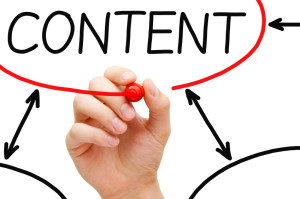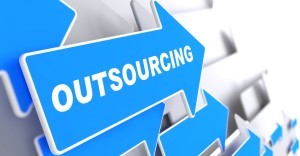Sales Marketing
Contact us to learn more about Sales Marketing.
Contact us to learn more about Sales Marketing.
Contact us to learn how we can help you lead a successful B2B cold calling campaign.
 At Gabriel Sales we look at sales and content marketing execution like we do any other business process – it should be just that, a process. Sales and marketing can no longer live in their own silos and operate independently. Efforts need to be aligned from initial targeting and strategy development and all the way through to client servicing post-purchase. There are two things that remain constant through this process: the presence of your team and educational content marketing. This blog will focus on the importance of content for the sales side of your organization, and how it can be best employed to convert more opportunities.
At Gabriel Sales we look at sales and content marketing execution like we do any other business process – it should be just that, a process. Sales and marketing can no longer live in their own silos and operate independently. Efforts need to be aligned from initial targeting and strategy development and all the way through to client servicing post-purchase. There are two things that remain constant through this process: the presence of your team and educational content marketing. This blog will focus on the importance of content for the sales side of your organization, and how it can be best employed to convert more opportunities.
The days of the hard sale and forcing buyers to purchase are long past. Buyers want to buy on their own terms. When you couple this with the increasing strain on organizational budgets and budget making, the job of the traditional sales rep is getting ever-more difficult. This shift in the relationship of the buyer and seller is driven even further by the abundance and proliferation of information in the digital space. Information is readily available for buyers to educate themselves, identify potential solutions and make purchase decisions. The role of the seller is to help them through this process while keeping your solution top of mind.
There is no substitute for talented, intelligent and effective sales reps. However, in today’s market, it is impossible for even the most exceptional reps to be effective if they don’t have the necessary content to support them throughout the sale. This blog will focus on what content should be available to help maximize efficiency and conversions, differentiate yourself within your competitive set and how that content should be organized to achieve these things.
Content marketing can be designed in order to increase the effectiveness of your sales team, not just fulfill obligations of the marketing department.
How is your content marketing going to empower your sales reps?
We view content organization in a three-stage system. It is imperative that you have ammo in place across all three fronts in order to effectively empower your sellers and provide value through your content. Your content should be clear, digestible and actionable.
The thought process here is that the role of your reps is to help move the buyer through each level of content as they themselves move through their own buying cycle. You have to hold their hand and make them feel like they are in control and buying on their own terms. If you do this effectively, your content will make the sale for you. A description of each stage of content that you need to address can be seen below:
Stage 1 – Inform your potential buyer that solutions exist and that there is a gap between their current state and the “ideal state.”
This is the education level of content. Content that falls in this stage is not designed to convert your buyer. Many times, your organization’s branding and offerings are not even discernable at this stage. The goal here is two-fold: educate the buyer on an area of solutions/offerings that your business lives in and bring to light for them the pains and needs that they need to solve within their role. You need your potential buyer to be aware that there are gaps between how they are operating and the most efficient level that they could operate at.
Your sales reps need this information so they can properly help the buyer along their purchase process. The most effective reps will know how to properly apply this information to prospects that are ready to be moved along the sales cycle.
Stage 2 – Educate your potential buyer on your solution.
Now that you are dealing with a buyer that is aware that they have performance gaps or inefficiencies, it is time to present how your solution can help them do their job more effectively. Use this stage of content to differentiate yourself within your buyers consideration set. Show how you out perform compared to the competition with your offering.
Your sales reps need this stage of content in order to keep moving the sale forward. The only way to properly convince a buyer of your effectiveness in today’s market is to show them concrete examples and allow them to come to the conclusion for themselves.
Stage 3 – Convert them!
Your buyer is aware of the market of solutions, they’ve identified pains and needs that they need to fulfill, and they know there is a gap between their current state and the “ideal state.”
Now is the appropriate time to utilize the more traditional hard sell. Pricing structures, key performance metrics and client servicing value-adds are going to be effective now that your buyer is prepared and ready to digest them.
This is where your most experienced sales folks will strive, but they will only do so if they have effective content to combine with their personal style and influence. Empower your reps effectively by putting the tools in their hands that they can use to close more deals faster.
Buyers are 100% in control of the buyer-seller relationship now. This is directly due to the availability of information present in the digital space. It is more important now than ever that your sales and marketing teams are aligned with content strategy geared to guiding the buyer to your solution; not forcing it upon them.
Gabriel Sales has excelled for over 10 years at developing strategy and content plans that result in successful, scalable and repeatable sales engines. For more insight on content marketing and sales execution, check out “Get Your Prospects to Take Action: Content Variety.”
If you’d like to chat with us directly about your own system or getting one into place, please don’t hesitate to contact us.
 In our last blog, we discussed some of the main challenges B2B companies are having with sales and marketing today. To summarize, the three main challenges are technology implementation and use, developing content that engages customers and proving marketing’s value in a business sense.
In our last blog, we discussed some of the main challenges B2B companies are having with sales and marketing today. To summarize, the three main challenges are technology implementation and use, developing content that engages customers and proving marketing’s value in a business sense.
This blog will discuss three ways a B2B outsourced sales team can help your marketing efforts by helping to solve these challenges for their clients.
1. They can tell you what types of content you need and what types of content you shouldn’t waste your time with.
Many B2B companies entering the complex world of content marketing know they need content, but they don’t what type of content works in B2B and what type is needed for their specific sales. B2B sales outsourcing teams generally have experience working with dozens of clients in multiple markets and industries and therefore can offer insights and best practices based on what has worked in the past.
For example, engaging in social media marketing can be a lot of work. A B2B sales outsourcing team can tell you which platforms are most and least effective for your solution or market, and save you from spending hours on Twitter when your customers use LinkedIn. An outsourced team can also help in optimizing the content you already have so it is more engaging for buyers. For instance, they may tell you to break up an hour-long webcast into 5-10 minute chunks, making the content more accessible and less overwhelming for those on a time crunch.
2. They can help you use technology to make sure the content gets to the right people.
In addition to helping you create content that delights and engages your customer base, an outsourced B2B sales team can also help you to target the best decision makers and implement technology solutions to help manage and streamline the entire sales and marketing process.
In regards to complex software solutions like marketing automation, an outsourced team can help you through the implementation process and give you the do’s and don’t they have learned along the way. Additionally, they generally know how to integrate content with marketing technology through features like email drip programs, content/lead scoring and real-time alerts.
3. Their reporting yields insights that enable you to quickly improve and refine as time goes on.
An outsourced B2B sales team should report on the work that they do. The type of reporting you receive may vary depending on what company you work with and what your specific sales and marketing goals are. For example, at Gabriel Sales, we provide our clients with at least 12 different types of reporting on a weekly basis—including conversion ratios, email campaign analytics, verbatims of cold calls, etc. We also have weekly or bi-weekly status meeting to discuss progress and needs for improvement.
With this level of detail and transparency, it becomes much easier for companies to understand the value that marketing efforts contribute to the overall business. With all of the relevant data in front of them, companies are able to make better choices regarding strategy, and spend less time trying to figure out whether or not something is working.
If you’d like to know more about the value of B2B sales outsourcing, read 3 Ways B2B Sales Outsourcing Can Turn Around Stagnant Sales. Feel free to check out our services page to learn more about what we do and how we can help.
 It seems that B2B sales and marketing today is dominated by a whole bunch of acronyms that didn’t exist twenty years ago—CRM, SEO, MA, SEM, MLM, PPC, SMM—the list goes on.
It seems that B2B sales and marketing today is dominated by a whole bunch of acronyms that didn’t exist twenty years ago—CRM, SEO, MA, SEM, MLM, PPC, SMM—the list goes on.
As these acronyms suggest, the world we now live in is a digital one. In order to succeed and thrive in it today, companies need to not only be sales and marketing experts, but digital experts as well.
For many companies, entering the digital game has been somewhat of a struggle:
Struggle to implement marketing automation
In a 2014 report published by Regalix on the State of Marketing Automation in 2014, it was found that two of the top obstacles to implementing marketing automation were lack of expertise to use the data and intelligence offered by the tool (55%) and complexity of marketing automation software (34%). Additionally, the report found that it took 64% at least six months to see results from their marketing automation implementations.
Struggle to engage customers via content marketing
A July 2014 report from the Online Marketing Institute found that while over half of B2B marketers claim their content marketing efforts are ‘very mature’ (51%), most are finding it difficult to develop content that engages customers (87%). The report suggests that the reason for this disconnect may be in B2B marketer’s focusing too much on closing the deal and not enough on creating compelling content for the entire lifecycle of the B2B buyer.
Struggle to prove marketing’s business value
The same report from Online Marketing Institute found that B2B companies are also having trouble tying their content marketing efforts back to real business value. 85% admitted that their content activity is only somewhat effective (or less) at delivering business value in terms of generating revenue, retaining customers, or winning customers’ long-term loyalty. Additionally, “when asked to look back at the past 12 months and rate the effectiveness of content marketing efforts, only 14% of those surveyed gave their content practices high marks for delivering value back to the business.”
Given these findings, it is no surprise that many B2B companies out there are looking for solutions to improve technology use, create more engaging content and prove the value of their efforts. One solution many B2B companies are finding success with is B2B sales and marketing outsourcing, and our next blog discusses three of outsourcing’s main advantages.
Continue Reading – 3 Ways an Outsourced B2B Sales Team Can Help Your Marketing Efforts
 B2B companies are always looking for ways to sell more and better. This year, it looks as through B2B companies may be trying to tap into a marketing strategy that has so far been dominated by B2C: mobile.
B2B companies are always looking for ways to sell more and better. This year, it looks as through B2B companies may be trying to tap into a marketing strategy that has so far been dominated by B2C: mobile.
Mobile in B2B
As early as last fall, marketing studies began finding that “B2B commerce is adopting B2C best practices in order to optimize the purchasing experience.” In terms of mobile, the study found that 75% of respondents planned to offer mobile sometime within the next 12 months.
The study suggested that the motivation for this stems directly from customer demand. This makes sense, as mobile devices become more and more a part of our lives, we increasingly want to be able to use them to learn about consumer products and services, whatever type they may be. In other words, whether we are looking for a new car or management consulting services, we want to be able to do both on our iPad while we are waiting to catch a plane or for our daughter to be done with soccer practice.
More recent data shows B2B companies are taking this demand seriously and investing to meet their customers’ needs. At last month’s Internet Retailer Conference & Exhibition, a study of 100 businesses was done that found:
“Mobile commerce was cited as a top investment area more often by companies involved with B2B e-commerce than by those in retail e-commerce . . . Among those [37] respondents that were solely B2B, 26 cited mobile as one of their top three investment areas, followed by 19 that cited web commerce, 19 social, 10 e-mail marketing, and nine search marketing.”
For more on B2B marketing trends in 2014, you can read this blog series.